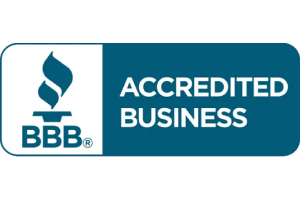
Credit reports are different from credit scores. Although the two terms sound interchangeable, they offer different insights to lenders as to how you have handled credit in the past.
What Is a Credit Score?
The simplest definition of a credit score, is that it’s a three-digit number, that provides a snapshot of your “creditworthiness.” Your score is based on a few core factors including, payment history, credit consumption, the average age of your credit, your mix of credit types, and credit inquires. FICO is the most widely used credit score model. A person’s score can range from 300-850. The higher your score, the more likely a lender is to believe that you’ll pay the money back that you are borrowing.
What Is a Credit Report?
Credit scores aren’t the only thing lenders consider when reviewing applicants. If you have no credit or poor credit, the lender will see that reflected on your credit report. Your credit report contains identifying information like your name, address, and Social Security number. It also contains specific information about credit accounts that you have, such as the date an account was open, the last date of payment, your balance, and payment history. It also contains things that are public record, like bankruptcies and tax liens. All this information gives lenders insight into your borrowing behaviors.
The big difference between a credit score and a credit report is that your credit score is just that, a score. It doesn’t give you any indication as to what factors contributed to the origin of that number. Whereas your Credit report gives you specific details for things like which months you had late or missed payments and if an account is paid or not.
Every 12 months you can get a free copy of your Credit Report from AnnualCreditReport.com. Checking your own credit report this way does not trigger a hard inquiry, so pulling this report will not have a negative impact on your credit score. By checking your credit report, you can ensure that there are no errors and you can see what potential lenders are seeing.
How to Repair and Raise Your Credit Score
Want to qualify for the lowest interest rates when applying for auto, mortgage or personal loans? Then you’ll need a top-notch credit score. Most lenders today rely heavily on your three-digit credit score to determine what interest rate you may qualify for. Generally speaking, lenders reserve their lowest rates for those borrowers who have a credit score of 740 or higher on the FICO credit scoring model.
Good news for those of you who are still working towards that 740+ credit score. LPI doesn’t use the credit score model to determine credit eligibility! Instead, LPI looks at your job time, residence time, and your ability to repay the loan back. Having an account with LPI is a great way to help you build and improve your credit score too. We report to Equifax and TransUnion monthly, so every time you make that set monthly payment on time, it shows up positively on your credit report. The most important factor in building credit is to pay your bills on time. It accounts for 35% of your credit score. Delinquent payments and collections have a major impact on your score, so stay current!
Another 30% of your score is based on the amount you owe on accounts. Keep your balances low on credit cards and other revolving credit. Focus on paying off debt instead of moving it around. Don’t close unused credit cards and don’t open new cards that you don’t need simply to increase your available credit.
There is no quick fix or overnight secret formula to improve your credit. It takes time and determination. Be a smart consumer. Pay your bills on time and cut down on your credit card debt. These two actions alone make up 65% of your credit score and are the keys to boosting your credit score.
Frequently Asked Questions
Here are some common questions we receive about credit repair.
Is paying off my loan early better than making payments?
The answer to that question is not necessarily, it’s really a “catch-22”. The length of time you’ve had your accounts open is approximately—fifteen percent—of your score. While it may be good for your personal finances to payoff a loan early, it doesn’t really help your credit score over the long term. You see, an open account, in good standing does more to boost your credit score than a closed account. The reason for that is this, an open account shows that you are consistently good at handling credit wisely. Whereas a paid account only shows past good payment behavior and that becomes less and less predictive of future credit habits.
Will paying a delinquent account current restore my credit score?
The short answer to that question is, no. Most derogatory information such as late payments, collection accounts, charged-off accounts, tax liens, repossession, and judgments stay on your credit report for up to seven years. If you’ve filed for bankruptcy, that information can stay on your report for up to 10 years. Nearly 35 percent of your score is determined by whether a person pays his/her bills on time.
If you have had anything from missed payments to bankruptcy on your credit report, it’s important to remember that there are no quick fixes. Try not to focus on past mistakes, instead focus on consistent good payment behavior going forward. It’s simple advice, but it’s true: make at least the minimum payment every month on time and you will see your credit score climb.
Will opening a personal loan improve my credit score?
The type and mix of credit makes up about— ten percent —of a score. The healthier the mix of credit, the more your score will grow. An installment loan, such as a car loan, does help to show diversity of credit. Just by having a personal loan, with an on-time payment history, you will see your credit score gradually and steadily rise. Remember, good credit is no accident – it’s a continuous process. Now you know the tips to make that process work for you!
If I apply for new credit will my credit score drop?
Like most things associated with a FICO credit score, the answer isn’t exactly black and white. The impact from applying for credit will vary from person to person based on their unique credit history. Use this information to help you all be more informed about credit checks.
When you apply for credit, you authorize the lender to ask or “inquire” for a copy of your credit report. Having multiple inquires on your credit report can equate to higher risk. Statistically speaking, people with six inquires or more on their credit report can be up to eight times more likely to file bankruptcy than people with no inquires on their report. While inquires can play an important part in assessing credit risk, they only marginally impact your credit score.
If you are applying for several credit cards in a short period of time, multiple “inquiries” are going to appear on your credit report. These inquiries could lower your score by less than five points per inquiry. Credit inquiries like these differ from say, interest rate shopping for a single loan. Like when you are shopping for an automobile. For these types of loans, FICO ignores inquiries made in the 30 days prior to scoring. So, if you find a loan within 30 days that shopping around won’t drop your credit score.
Taken as a whole, inquires have a minimal effect on your credit score, whereas maxing out your credit card could drop your score by 10-45 points. Even worse is paying your bills late! That alone could drop your credit score by 75-110 points.
What is the moral of the story? Shop smarter! Only apply for credit that you need, and when you do see an inquiry on your credit report know that they only have a tiny effect on your credit score if any at all. (Information obtained from www.myfico.com.)
Call Your Creditor
Can’t pay your bill? When financial hardship hits or an unexpected expense leaves you short, there are steps you can take to reduce the impact of falling behind. The first thing you should do is contact your lender and discuss your payment options. Explain why you are having a hard time making your payment, and ask the lender what options there are to keep you on track and avoid damaging your credit.
Talking to creditors about late payments can feel intimidating, but remember that your financial wellbeing is at stake and talking to your creditor is the best way to avoid your account being sent to collections. Keep a cool head, focus on the facts, and discuss specifics with your lender. Explain your situation. Are you laid off or did you lose a source of household income due to divorce? Examine your budget, and be ready to tell them how much you can afford to pay towards your debt this month. Tell them when you will be able to start paying the full monthly payment again.
If you fail to reach out to your creditor you may receive a “Notice of Right to Cure” in the mail. Never disregard a right to cure letter. It is often your last chance to address the problems surrounding your past due account. The letter will contain specifics about how far past due you are and it will tell you how much time you have to remedy or “cure” your default status. Disregarding this letter typically results in lawsuits, repossessions, and foreclosures.
Derogatory information such as late payments, collection accounts, charged-off accounts, judgments and repossessions stay on your credit report for seven years, but they don’t have to. Call your creditor if you think you can’t make next month’s payment—the person on the other end of the phone may be the only thing standing between you and long-term damage to your credit.




